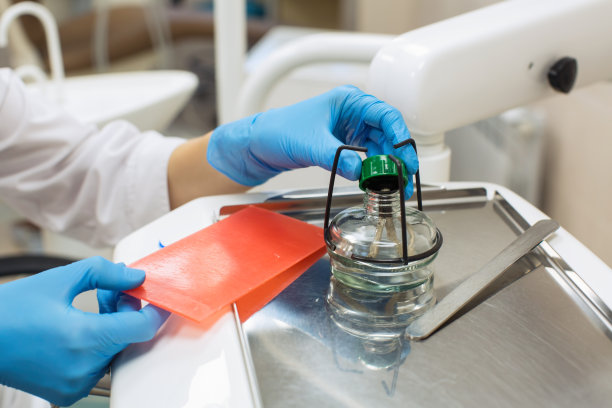Summary: Dental implant surgery is a sophisticated procedure that can significantly enhance oral health and improve the quality of life. However, before moving forward with the surgery, there are essential considerations and precautions to ensure successful outcomes and a smooth recovery. This article discusses four critical areas: understanding the surgical process, evaluating medical history, preparing for post-op care, and choosing the right dental professional. Each of these aspects plays a crucial role in attaining the best possible results and maintaining optimal oral health.
1. Understanding the Dental Implant Procedure

Before undergoing dental implant surgery, it is vital for patients to comprehend the procedure thoroughly. Knowing what to expect helps in alleviating anxiety and aids in better preparation. The surgery typically involves placing a titanium post that functions as the root of the missing tooth. This post is anchored into the jawbone, allowing for a stable foundation for a crown that will be placed later.
Understanding the different types of implants available is equally important. There are endosteal implants, which are the most common and placed directly into the jawbone, and subperiosteal implants, which are placed under the gum but above the jawbone. Discussing the best option with your dentist can clarify which method is most suitable for your circumstances.
Additionally, patients should be informed about the duration of the entire process. From the initial consultation to complete recovery, it might take several months, as the implant needs time to fuse with the jawbone, a process known as osseointegration. Patients should be prepared for follow-up visits to ensure proper healing and progression.
2. Evaluating Your Medical History and Current Health
Another critical factor before undergoing dental implant surgery is a thorough evaluation of your medical history and current health status. Certain pre-existing conditions like diabetes, heart disease, or autoimmune disorders can affect the healing process and overall success of the implants.
Its essential for patients to inform their dentist about any medications they are taking. Some drugs may interfere with the healing process or increase the risk of complications. Blood thinners, for instance, may need to be paused before surgery, but this should always be done under a healthcare providers supervision.
Moreover, oral health plays a significant role in the success of dental implants. Any existing gum disease or infections need to be addressed prior to the surgical procedure. A comprehensive dental examination, including imaging tests, will help identify potential dental and health issues that may affect the operation and recovery.
3. Preparing for Post-Operative Care and Recovery
Proper preparation for post-operative care can significantly influence recovery and the success of dental implants. Patients should follow their dentists guidelines closely after the procedure, including advice on diet, oral hygiene, and activity restrictions.
Immediately after surgery, patients may experience swelling, bruising, and discomfort. To manage these symptoms effectively, pain relief medications may be prescribed. Ice packs can also help reduce swelling during the first day following surgery.
Following the dentists post-operative instructions is crucial, including recommended dietary adjustments, which usually involve sticking to soft foods and avoiding hard or crunchy items that could disturb the healing area. Oral hygiene routines will also need to be altered temporarily to protect the surgical site, and patients should follow up closely with their dentist to monitor healing progress.
4. Choosing the Right Dental Professional for Your Needs
The choice of dental professional is a vital consideration that can greatly influence the outcome of dental implant surgery. It is crucial to select an experienced and qualified dentist or oral surgeon specialized in implantology. Prospective patients should verify credentials, ensuring their provider is licensed and has positive reviews from previous patients.
A thorough consultation prior to the procedure will also allow patients to gauge the dentists communication style, approach to treatment, and the overall atmosphere of the practice. This relationship can greatly impact comfort levels throughout the process.
Additionally, understanding the available technology and techniques that the dental professional utilizes is essential. Advanced imaging techniques and innovative surgical methods can make a significant difference in the success rate and recovery time associated with dental implant surgery.
Summary:
In conclusion, taking the time to consider these essential factors and precautions before undergoing dental implant surgery will lead to optimal oral health and a smoother recovery. Understanding the procedure, evaluating your medical history, preparing for post-operative care, and choosing the right dental professional are all crucial steps towards ensuring success.
This article is compiled by Vickong Dental and the content is for reference only.
Vickong Dental
Vickong Dental is a large medical group established in Hong Kong in 2008 by professors from well-known medical universities in Guangdong and Hong Kong, as well as medical doctors from key national '985' universities (including Master's supervisors and senior professors). The chain of branches brings together expert dentists with PhDs and Master's degrees from Hong Kong and Mainland China, committed to providing high-quality dental treatment.
"Vickong Dental Practices the University Motto of 'Healing and Serving Society,' with a Stable Operation for Sixteen Years. It Has Been honored with Hong Kong Enterprise Leaders's Choice,' and is a Global Trusted Implant Center for the Nobel Implant System. Recommended by Hong Kong Metro Broadcast and Guangdong Television, it Serves Customers from Over Thirty Countries and Regions, Gaining the Trust and Favor of Citizens from the Guangdong-Hong Kong-Macau Greater Bay Area and Surrounding Cities.

Thousands of customers' unanimous praise
The most recognized and highly recommended dental service by customers in the Guangdong-Hong Kong-Macau Greater Bay Area
We Ensure You Receive Detailed Care and Attention Here
Hong Kong standards, Shenzhen prices, Your Trusted English-speaking dentists

Vickong Dental Medical-Grade Instrument Disinfection Process
Vickong Dental Medical-Grade Instrument Disinfection Process

Vickong Dental Chain: A Warm and Comfortable Environment for Treatment






Appointment Hours

Q&A
Why choose Vickong Dental?
Vickong Dental practices the university motto 「Medicine to Benefit Society」, with each branch bringing together highly qualified dentists with doctoral and master’s degrees from Hong Kong and the Mainland, and has maintained seventeen years of steady operation。Recipient of 「2024 Hong Kong Enterprise Leaders Brand」, 「2025 Hong Kong Enterprise Leaders Brand」, a Nobel Biocare Global Trusted Implant Center, and a brand recommended by Metro Radio Hong Kong and Guangdong TV。
To date, we have served customers from more than thirty countries and regions,earning exceptionally high word-of-mouth recognition and trusted recommendations from residents across the Guangdong-Hong Kong-Macao Greater Bay Area and surrounding cities
We have eight major branches in Zhuhai、Shenzhen,and a consultation and service assurance center in Hong Kong,so you can book a free consultation at any time for any questions,which is very reassuring.
If I do not accept the quotation after the CT scan, will I be charged??
No! As long as the actual treatment has not started, you will not be charged any fees.
Will there be any additional charges during the treatment process?
No, there won’t be any additional charges. Before treatment begins, we will clearly explain the treatment plan and its corresponding fees. Only after the patient agrees and signs the consent form will we proceed with the dental service.
Can I pay in Hong Kong dollars?
Yes. Vickong Dental accepts payment in Hong Kong dollars. The amount will be converted based on the exchange rate of the day, and the applicable rate will be clearly communicated to you in advance.
Can I reschedule my appointment at any time?
Yes. Please contact us via **WeChat** or **WhatsApp** as early as possible, providing your original appointment time and details, along with your preferred new date and time slot for rescheduling.













